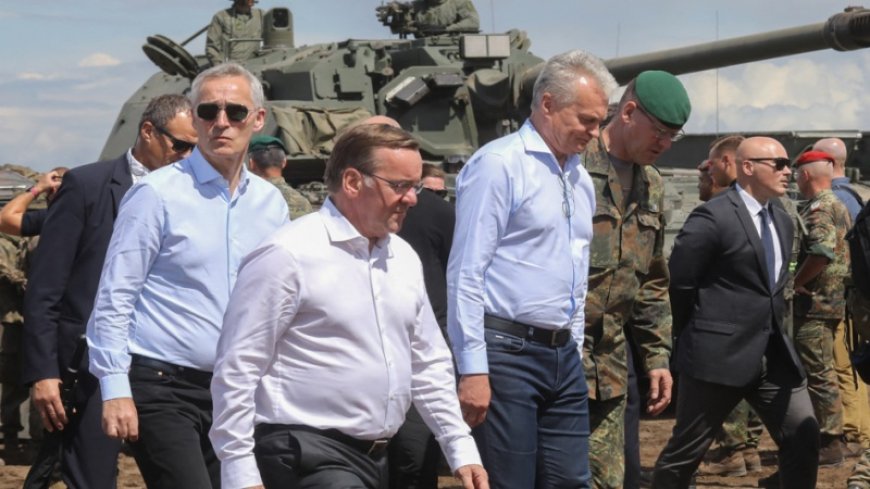Germany agrees to permanently station 4,000 soldiers in Lithuania
Germany agrees to permanently station 4,000 soldiers in Lithuania

Germany agrees to station 4,000 troops in Lithuania to bolster NATO's eastern flank bordering Russia. Visiting Vilnius, the capital of Lithuania, Defense Minister Boris Pistorius said Berlin will become “a permanent strong brigade in Lithuania station". "It will be a significant effort," Pistorius said along with his Lithuanian counterpart Arvydas Anusauskas.
"That's why we agreed to build up a brigade step by step" and to expand the infrastructure - an effort that will take more than "just a few months", said the Federal Minister. Pistorius underlined Berlin's commitment to security of Lithuania.The Lithuanian defense minister, in turn, said a German brigade in his county was a "priority." "We stand ready to continue working together to meet the needs of the German armed forces and get a brigade-sized unit as soon as possible." "
President Gitanas Nausėda welcomed Berlin's decision, saying Lithuania is "the front line of NATO, where there is no place for the slightest vulnerability. "After meeting with NATO Secretary General Jens Stoltenberg on Monday, the Lithuanian President said: "Air and missile defense and an increased presence of allied forces on the territories of our countries are of crucial importance for the Baltic States and the entire eastern flank. Effective deterrence and forward defense are our top priorities. "
The German military has been present in Lithuania for six years with several hundred soldiers. It was not immediately clear what would happen to this unit once the new German brigade was stationed in the country.Lithuania borders Russia and Belarus and has repeatedly urged Berlin to send combat troops into the country. Last year, Berlin vowed to have a combat brigade ready to defend Lithuania in the event of an attack should be stationed in the Baltic States or sent there only temporarily for exercises.
Berlin has so far refrained from stationing a large part of the brigade permanently in the country. It says the troops could be deployed quickly from bases in Germany if needed. Eastern European countries have always expressed concern that most of their Western European counterparts are too slow to respond to what they describe as a Russian threat.
They continue to urge expanding the size and range of the eight NATO forces stationed on the bloc's eastern flank, and advocate for larger NATO allies to deploy more military equipment farther east.Some NATO allies, including Poland, are also urging the United States to expand its intelligence and command capabilities along the military bloc's eastern flank. However, Russia has consistently warned NATO against its eastward expansion.President Vladimir Putin has repeatedly railed against the West for pursuing NATO's eastward expansion, particularly for courting former Soviet republics such as Ukraine and Georgia.













































